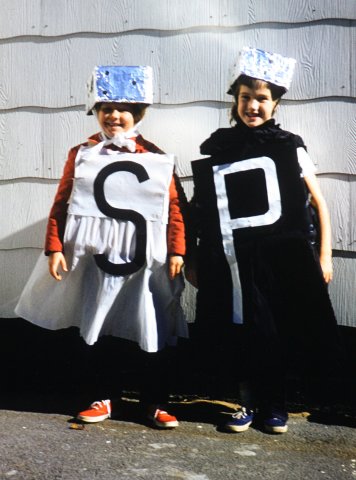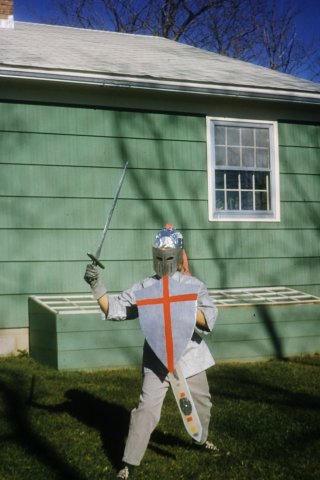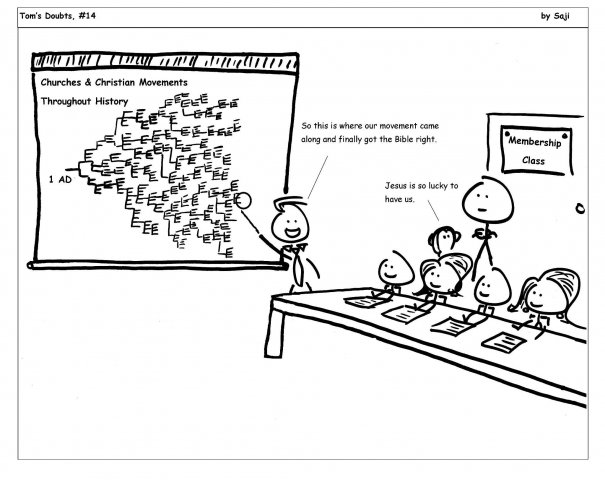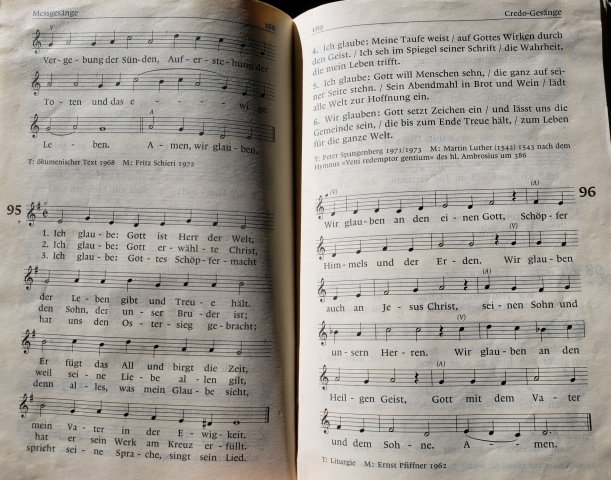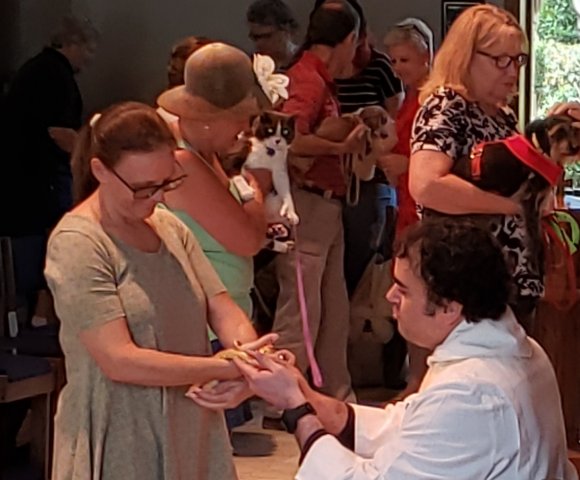I love the fun and challenge of homemade Hallowe'en costumes. These range (not in order) from 1958 to 1989, and were chosen for the practical reason that they were the photos I could find handily.
The Quill Pen and the Umbrella

Those were the days! The days before the proliferation of adult Hallowe'en parties, "harvest festivals," trick-or-treating at the mall, "Trunk-or-Treat", and safety-above-all. We enjoyed crisp fall nights (we never went out before dark!); hand-carved pumpkins with candles inside (though every Hallowe'en was haunted by the memory of the hoods who prowled the streets smashing them, breaking my six-year-old heart) and roasting our own pumpkin seeds; roaming throughout the neighborhood as a family, waving at our friends as we passed (we only went to the homes of people we knew, but that was most of the neighborhood and certainly provided a more-than-sufficient "haul"); consuming cider (unpasteurized, of course), doughnuts, and my mother's amazing pumpkin cookies. And we never, ever bought a costume! Hallowe'en was about children, creativity, family, and neighbors even more than candy. Not that the candy wasn't significant in those days when sweets were not so readily available as today.
I tried to keep my experience of Hallowe'en alive for our children, and succeeded to some extent. Moving to Florida pretty much did away with the "crisp fall nights" part, however.
Permalink | Read 1242 times | Comments (1)
Category Everyday Life: [first] [previous] [next] [newest]
Psalm 22:21, New international Version (NIV) translation: Rescue me from the mouth of the lions; save me from the horns of the wild oxen.
Psalm 22:21, Coverdale translation: Save me from the lion's mouth; thou hast heard me also from among the horns of the unicorns.
No doubt the NIV, product of both modern scholarship and better understanding of Hebrew, is the more accurate rendering. But there is something appealing about Coverdale's version.
And you thought unicorns were pink, purple, sweet, and girly. Clearly they were previously understood to be powerful, fierce, and dangerous.
Watch out next time you underestimate a girl.
Of course, if you've read The Rithmatist, you already know that about both girls and unicorns.
Permalink | Read 1299 times | Comments (4)
Category Random Musings: [first] [previous] [next] [newest]
Today some of the world's craziest most dedicated cyclists are tackling Pittsburgh's Dirty Dozen bicycle race. I know about this not just because Heather used to live in Pittsburgh, but mostly because the race was founded by Danny Chew, the brother of one of our friends. I've written about Danny before; for example, when he and our friend's son biked from Pittsburgh to Alaska.
The coincidence of today's race with seeing this Babylon Bee article in my Facebook feed was too good to pass up. (Thanks, Spencer.)
Motorcyclist Who Identifies As Bicyclist Sets Cycling World Record
I've never seen the Dirty Dozen race live, nor am I likely to, given that we no longer have family in Pittsburgh. But I've seen some of those hills, and know that walking my bike up them would be enough of a challenge. I suspect even a motorcyclist would think twice.
Permalink | Read 1261 times | Comments (0)
Category Everyday Life: [first] [previous] [next] [newest]
It's funny how often when we react against something we nearly always throw the baby out with the bathwater.
Having had my cultural-formation years, and well as my Christian-formation years, steeped in Protestantism of the more Reformed sort, there were two things it never occurred to me to do: (1) show any particular respect for Mary, the mother of Jesus (except briefly, at Christmastime), and (2) read the Apocrypha—those writings from "between the Testaments" that are considered to be part of Holy Scripture by Catholics but not by Protestants. (I'm simplifying the situation somewhat.)
I think the greatest reason for the first was that Catholics make so much of Mary, often—or so it appears to Protestants—making her seem more important, and more venerated, than Jesus. To avoid that error, it was safest to ignore her. Plus there's no denying a certain historical bias against women. In more than one church of my experience, certain (male) saints are highly venerated, especially St. Paul. Also St. Peter, though he's a bit tainted because he's so important to Catholics. But Mary? Almost no mention at all, and very little honor paid. In fact, we once were called on the carpet over an instrumental-only version of the beautiful and famous Bach/Gounod Ave Maria played during the service. Did I mention that it was instrumental only, i.e. no words, offensive or otherwise?
It's not surprising that I never heard anything from the Apocrypha during a church service. Church readings tend (rightly) to be from Scripture, and if you don't think a book is part of the Biblical canon, better skip it. But these books (more or less) were included in the Bibles used throughout most of Christian history, including by Martin Luther, John Calvin, John Knox, and John and Charles Wesley. Luther called them "useful and good to read," though not equal in value to the canonical books. The Anglican "39 Articles" accepts the Apocrypha "for instruction in life and manners, but not for the establishment of doctrine." What's more, they were part of the world in which Jesus lived, and one can see their echoes in the New Testament.
But none of these reasons are why I decided to—finally!—read through the Apocrypha. I was tired of being culturally illiterate. In the world of art, music, and literature, many important works reference stories from the Apocrypha. Even if we consider them completely fictitious, why do we not learn their stories the same way we learn the ancient Greek, Roman, Egyptian, and Norse myths? We know about Apollo and Daphne; why not about Judith and Holofernes?
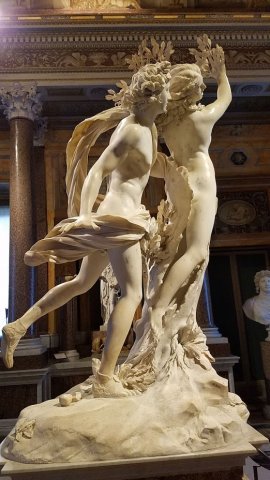

Apollo and Daphne by Bernini, Judith Beheading Holofernes by Caravaggio
Cultural literacy aside, what did I think of the Books of the Apocrypha? Mixed. Here's the list, as they appear in my Revised Standard Version Bible (Catholic edition), followed by my reactions. (I deliberately read these books without learning anything about them, wanting to collect my own first reactions, unprejudiced.)
Tobit, Judith, The Additions to Esther, Wisdom of Solomon, Sirach, Baruch, The Letter of Jeremiah, Song of the Three Young Men, Susanna, Bel and the Dragon, 1 Maccabees, 2 Maccabees, 1 Esdras, 2 Esdras, and The Prayer of Manassah.
The reading started out well. It was exciting to read the stories, such as those in Tobit, Judith, and Susanna. Several of the others seem to fit in with Old Testament books, but apparently are not considered authentic enough to be included.
The Wisdom of Solomon reads very much like Solomon's writings in Proverbs. Sirach (also called Ecclesiasticus) is a collection of similar proverbs, but feels as if written at a later time than Solomon's. Proverbs is one of my favorite Bible books to read, but I found Sirach, on the whole, boring—sometimes even offensive. Many of the proverbs show wisdom, but others are strange. For instance:
Better is the wickedness of a man than a woman who does good, and it is a woman who brings shame and disgrace.
This one's better (emphasis mine):
Speak, you who are older, for it is fitting that you should, but with acccurate knowledge, and do not interrupt the music.
Speaking of music, how about this one?
Do not associate with a woman singer, lest you be caught in her intrigues.
On the other hand, this is an interesting anticipation of the language of the Eucharist, which if you first encounter it in Jesus' words seems more shocking than it probably was for his disciples.
[Wisdom speaking] Those who eat me will hunger for more, and those who drink me will thirst for more.
Sirach is also the source of the familiar line, Let us now praise famous men. Many such revelations pop up in the Apocrypha: "Oh, so that's where that came from!"
The biggest disappointment was the Maccabee books, not only because they are much like my least favorite parts of the Old Testament—war and more war—but mostly because the story of the miraculous eight-day supply of oil, which is the event celebrated at Hanukkah, is not there, where I expected it to be. Apparently that event, though it occurs in the time of the Maccabees, was not written down until much later, in the Talmud.
I very much enjoyed the between-testaments "feel" of the books, particularly in the ones that are not just additions to Old Testament books. You can see how Jewish thought is evolving, in particular to include belief in resurrection and life after death, and in the Messiah whose coming was fully anticipated to bring military triumph to the Jewish people.
1 Esdras reads like normal Old Testament history, but 2 Esdras is just plain weird. If you enjoy Revelation, you'll love 2 Esdras.
My verdict on the Apocrypha? I'd say Luther was right. It is "good to read," though not as infallible Scripture. It is at least as interesting, helpful, and important as the history, wisdom, and stories we read from other sources without thinking twice about it.
I see no reason why the books of Apocrypha, honored in religion and culture for most of their history, should in modern times be in such disfavor. I won't be reading them annually the way I do the Old and New Testaments, but I'm glad I finally made their acquaintance.
What's next? I'll begin my yearly cycle again when Advent comes, but in the meantime, since I just finished reading C. S. Lewis's book, Reflections on the Psalms, I think I'll run through the Psalter. For this purpose I'll step briefly away from the Revised Standard Version and pick up my 1928 Book of Common Prayer, which retains the Coverdale translation of the Psalms. I think I'm still reacting to my two years with The Message. After this, I'll revert to the more middle-of-the-road RSV. Lewis says,
Even of the old translators he [Coverdale] is by no means the most accurate; and of course a sound modern scholar has more Hebrew in his little finger than poor Coverdale had in his whole body. But in beauty, in poetry, he, and St. Jerome, the great Latin translator, are beyond all whom I know.
What a pity we can't get both modern scholarship and beauty!
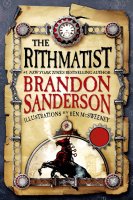 The Rithmatist by Brandon Sanderson (Tor Books, 2013)
The Rithmatist by Brandon Sanderson (Tor Books, 2013)
I was hoping to have another Brother Cadfael book for my Sabbath reading, but #8 is currently unavailable at our library in any form.
Enter, at the precise moment of need, the hearty recommendation of my daughter for Brandon Sanderson's The Rithmatist. Sanderson's works were previously recommended to me by my brother, and then by our grandson, but both of them have a predilection for very thick books in very long series. Knowing that Heather read The Rithmatist in a day—albeit one that cost her more sleep than it should have—and enjoyed it thoroughly was enough push to overcome my inertia.
My only disappointment is that the final words of the book are "To be continued." Never trust an author who prefers to write in series form. Worse, the sequel isn't due out for some time yet. Nonetheless, the book is complete enough in itself and was nearly impossible to put down. Apparently a New York Times review included the complaint, "there is almost no action until the climax." Were we reading the same book? Is the reviewer using the term "action" merely as a synonym for "battle scenes"? The Rithmatist is bursting with action and excitement from beginning to end.
Sanderson has created a very clever "alternative world" and I look forward to reading more about it. Since that time seems to be well into the future, perhaps I should venture into his Mistborn series, though his own blurb for that promises "romance" among other things—and that's often enough to kill my interest. Still, that part can't be too bad, or my grandsons wouldn't be recommending it.
As I've written before, we enjoy watching Rick Steves' television shows about travel, and make extensive use of his guidebooks when visiting unfamiliar places. Another resource that we found invaluable on our recent trip to Rome was a Great Courses series, The Guide to Essential Italy.
Neither, however, advises what we discovered for ourselves on our visit: Do as much as you can in the morning. For us, Rome was at its best before noon: the weather was pleasant, and the streets were delightful to walk through, with more locals than tourists in sight. Except for the most popular attractions, e.g. the Colosseum and the Vatican, crowds were low, and we were able to visit museums and churches relatively unjostled.
By noon, the crowds of tourists had begun to take over the city, and Rome under the afternoon sun suggested that we were back in Florida. The early evening mobs reminded me of taking Boston's Green Line buses during rush hour, and the threat of pickpockets became a much more serious issue.
As for eating, we found late afternoon to be a delightful time to relax in a restaurant after a hard day of walking and museum-browsing. Perhaps because Rome must cater to tourists, we found most restaurants open for a four- or five-o'clock dinner, with plenty of available tables and attentive staff. It was also still light, for better views, and relatively quiet—as it gets dark, the music gets louder, a correlation without obvious causation.
No doubt "night people" have an entirely different view of Rome, but this worked very well for us. Our only later-evening excursions were short walks down the street to the local gelato place, which soon became our nightly habit before falling into a deep and exhausted sleep.
Our Church History class has resumed: we have moved on to Volume 2 of Justo L. Gonzales' The Story of Christianity. The books are interesting and the class even better—it's helpful to have our well-educated pastor's insights to affirm/debunk/clarify/expand the author's views. I wish there were more discussion—but the class is already an hour and a half long.
I recently rediscovered this cartoon, which I first came upon in 2012. Sometimes it feels like a good summary of church history. Or the history of science, for that matter. Or the human condition in general! (Click image to enlarge.)
When visiting Rome, we prayed in far more churches that I can possibly remember, from the incredible St. Peter's Basilica in the Vatican, to the personal chapel of the popes at the Scala Sancta, to the little churches everywhere on the streets of Rome, each filled with museum-worthy artwork.
But we only attended two services on our trip, both in Switzerland, both official state churches, one Reformed and one Catholic. The way I figure it: on average, we were Anglican.
The first church was just about what you'd expect from a Reformed church: a pulpit, a cross, an organ, and some chairs. Scripture, a long sermon, and a little music (no choir). I'm told there's sometimes more music than we experienced. Of course it was all in German, but it's amazing how much you can understand of Scripture readings if you know the Bible well enough, and we even figured out a tiny bit of the sermon. Singing in German is almost easy if you (1) have the words and the music, and (2) know even a very little bit about German pronunciation.
Our second service was Catholic, and it's not really a fair comparison, because it was a special day for the church, a celebration of the saint for whom it is named. Therefore the music was special, and included the choir, which doesn't always sing for the services. (That's not all bad, as it allows Stephan to sing in the choir and still attend most of his usual church's services.) It's a modern building, but not nearly as bare as the Reformed church.
Once again, we could pick up a little bit of the Bible readings and the sermon, but of course it was mostly lost on us. On the other hand, if only we had been provided with a written transcript of the liturgy, we could have participated in most of it and known exactly what was going on, even if we didn't understand most of the German. It was recognizably very much like our Episcopal (Anglican) service. (To be fair, the Catholics would say the Anglican service is very much like theirs.) At one point, Janet leaned over and asked, "Do you say this at your church?" referring to a part of the liturgy not used in the Episcopal churches of her experience. "We do now," I replied (thanks to our current priest). I could tell you what the priest and people were saying, but I couldn't join in without the German words to read.
Here's one fun hymn (#95) we sang, fun for me because I knew the tune as that of The Glory of These Forty Days. Close enough, anyway. (Click on the image to enlarge.) Note that the Catholic hymnal attributes the music to Martin Luther, while Hymnary.org to Johann Sebastian Bach. It actually is Martin Luther's music, but Bach did base a famous cantata on it.
Hey, Eric! Look what I found in the Summer 2019 issue of American Ancestors!
I haven't had a cartoon published since my Dip City days. Not that this is entirely my cartoon, but it is my caption.
On Facebook, American Ancestors (The New England Historic Genealogical Society) occasionally runs a contest in which readers suggest captions for a cartoon that they plan to publish in their magazine. I had no idea that mine had been chosen till I reached the final page of the most recent issue.
That was a fun surprise!
When it comes to travel, I'm a huge fan of Rick Steves. Not of his politics, but if you avoid his more informal, off-the-cuff broadcasts, such as the ones you'll find on Facebook, you can mostly avoid that; his shows and guidebooks have the advantage of better editing. We've found his products enormously helpful in planning a visit to an unfamiliar city, from finding hotels to organizing our days to learning about the sites and sights we are seeing.
That said, we differ from Rick on sightseeing almost as much as on politics. If he says a museum visit will take an hour, we know to count on three. And we are simply not the least interested in the nighlife of a city, which he finds vital and stimulating. Neither his television show nor his guidebook mentions our great discovery about visiting Rome: Do as much as you can in the morning. (More on that in another post.)
Then there's people-watching. Apparently that's one of Rick Steves' favorite activities, as he frequently mentions it as a highlight of a trip. I've never seen the attraction, so I made a point one night, while enjoying gelato in the little shop down the street from our hotel, to try the exercise.
I couldn't do it. I couldn't remain focussed.
I'd start out taking notice of the people around me: the man carrying his crying child, no doubt exhaused from a day of sightseeing; the fashionably-dressed women accompanied by scruffy men; the customers who thought a single cigar worth the €20 price tag. I noticed with appreciation a woman whose grey purse exactly matched her grey suit—I've never in my life bought a purse to match an outfit. Then I noticed another woman whose bright orange purse exactly matched her bright orange outfit ... and my mind was off down a rabbit hole.
That purse can't be useful with very many colors. Does the woman wear nothing but orange? Does she have a purse for every dress she owns? I can barely handle three: something I need is inevitably back home in another bag. And I cringe at the cost every time I need to replace a worn-out purse; I can't imagine spending money on one that is useful solely for one outfit. She doesn't look wealthy. Then again, what does "wealthy" look like; how can I presume to judge her financial situation? How, for that matter, can I presume to judge her spending priorities? Why am I staring at her anyway? Seems downright rude to me.
Reluctantly, I hauled myself back to the nightlife around me, but soon my internal voice (a.k.a. Li'l Writer Guy) took over again. After about twenty minutes of such struggles, I gave up on people-watching.
Perhaps it's a sport for extroverts, who apparently do not engage in this constant internal dialogue. (I can't imagine that, but I'm told it's true.) At any rate, I found the exercise moderately interesting, but nearly as exhausting as a three-hour museum experience.
How many Anglo-Catholic snake-handling churches do you know? Once a year we let our wild side show.
This was at our annual Feast of Saint Francis Blessing of the Animals, where people bring their pets to receive a priestly blessing. Normally the service is outdoors, but rain intervened this week, so all the animals came into the sanctuary.
Had I known, I might have taken a preventative antihistimine, though I generally take such measures only as a last resort. Despite claiming for myself a corner away from most of the furry people—deserting my alto comrades and sitting amongst the sopranos—my eyes were burning before the service even began, and by the time it was over, I could barely sing. However, I managed to continue breathing unhindered, so I consider that strategy a win.
The snake? Snakes are good. No fur, no dander. Plus they eat rats.
Permalink | Read 1461 times | Comments (0)
Category Everyday Life: [first] [previous] [next] [newest]
Last Sunday, our church celebrated the Feast of Michael and All Angels. Also known, it turns out, as Michaelmas, a term I had only known thanks to a murder mystery in which "Michaelmas daisies" are featured.
The sermon included a short dissertation on the difference between actual angels and our popular conception of those beings, which reminded me of the observations we made during eight days of bingeing on Italian art while visiting Rome.
Biblical angels apparently feel the need to begin their encounters with humans by words like "Fear not." I'm guessing it's a pretty overwhelming encounter.
Angels in art? All too often they look as if they are about to announce, "Aren't I adorable?"
Jessye Norman has taken her voice to a higher choir. In memoriam I offer two versions of one of my favorite choir anthems, Donald Fraser's This Christmastide, a.k.a. Jessye's Carol.
With Ms. Norman herself:
and with the American Boy Choir. Our choir sang this back in the late 1990's, and the memory still moves me. I find it almost as powerful to listen to as to sing.



